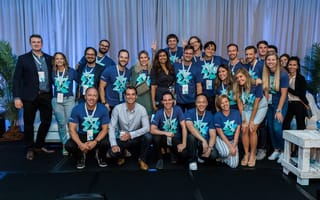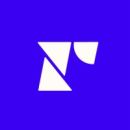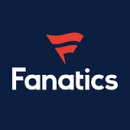There is no linear path to becoming a director of product.
Just ask Jason Tranel, director of product at ReCharge. In his first job, Tranel worked at a top-tier software consulting firm, which is where he says he gained leadership, strategy and organizational skills. Following that role, he started several of his own companies, which is where Tranel gained valuable engineering and marketing experience.
Similarly, James Oxenhandler, a senior director of product at Fanatics, said he gained his product chops through engineering experience. Oxenhandler, who has worked at the sports merchandise company for 10 years, said he began his career at the company as a full-stack engineer working on their web platform. From there, he worked on a project performing supply chain analysis. He credits the autonomy he experienced in that role for his enjoyment of product planning and transition into product management. For him, leadership, strategy and organization are all necessary traits for balancing product lifecycles.
“The ability to efficiently identify solutions and choose the best course of action is crucial to performing the job,” Oxenhandler said.
It doesn’t take a product background to develop leadership skills. Tranel learned leadership, strategy and organization from his previous position working in consulting. At e-commerce and payment company ReCharge, he uses those skills to ensure the product organization is aligned with product vision and business strategy while providing value to customers.
Tell us a bit about your professional background. How did you become a director of product?
My first professional job was working at a top-tier consulting firm providing software solutions. The position taught me leadership, strategy and organization. Following that experience, I started several of my own companies which allowed me to gain skills in engineering, marketing, sales, customer support and the entire product lifecycle.
Most recently, I’ve worked for several venture-backed and bootstrapped companies, which gave me the perspective of different phases and sizes of product organizations. These experiences — along with hard work, extreme ownership and leadership — have led me to become a director of product.
What are your job responsibilities?
As cliché as this might sound, there isn’t a typical day for me when leading the product organization. At all times we have numerous products at different phases in the product lifecycle and I’m helping to guide them. There are days I’m talking with customers to gain additional insights about their businesses. Other days I’m working more closely with engineering and design teams to develop new features. Then there are days I’m working with marketing, sales and customer success to launch a new product or help them better understand what’s next on the product roadmap.
At the end of the day it’s not about my success, it’s about the success of my team and the organization.”
What makes a good director of product?
A good director of product’s primary focus is ensuring the entire product organization is aligned on the product vision, strategy and goals. From there it’s making sure the team is prioritizing and building the right features that provide value to the customers.
You have to be really good at strategy, being inspirational and understanding the long-term picture. At the same time, you have to be really good at the operational side and making things happen.
At the end of the day it’s not about my success, it’s about the success of my team and the organization.
Oxenhandler said it’s important to balance business processes and the customer when developing products. Soft skills like communication and empathy are essential, but the technical nuances matter too. A typical day at Fanatics includes daily stand-ups, brainstorming with the product management team and conducting one-on-ones.
Tell us a bit about your professional background. How did you become a director of product?
I took the engineering path. I began my career as a full-stack engineer working on our web platform that sells logo gear to sports fans around the globe. From there, I worked my way up to senior director of engineering and led multiple teams working on that platform.
I transitioned onto a project performing supply chain analysis to inform our long-term strategy for delivering fans the right gear across every team and league as quickly and efficiently as we can. With that project I had a lot of autonomy, which is how I realized I enjoyed product planning. From there, it was a natural transition to product management.
Currently, I am leading a team of project managers focused on developing the tools and data intelligence pipelines that are used for our global buying, replenishment, assortment curation and pricing processes.
What are your job responsibilities?
We engineer tools for our partners on our buying, merchandising and product content teams. It is my job to understand the details and nuances of our business and figure out how the technology team can help serve our customers better. To do that, I work with our business partners as well as our engineering and data science teams to develop the tools they use to always keep us in stock with the gear that our fans love.
On a typical day I will do several things, such as trying to go to as many stand-ups as possible (I love to see how things are progressing). I also interface with our business teams to plan future work, work with the engineering and data science teams to align on both current and future work, and brainstorm with my PM team. I also have one-on-one meetings.
The ability to efficiently identify solutions and choose the best course of action is crucial to performing the job.”
What makes a good director of product?
The ability to thoroughly understand business processes as well as your end customer. You are tasked with identifying ways to improve both through technology. To do this effectively, you must have a detailed understanding of how your business functions and distill it down to requirements for your team.
Second is the ability to form close and trusting relationships with both business and engineering teams (a high EQ helps here). This is especially important in the technology industry, as there is a broad range of personalities. Having the ability to facilitate complex conversations while keeping everyone on the same page is crucial to the success of your teams and product.
Finally, there is the ability to think strategically. All product managers spend a lot of their time analyzing data and formulating plans to solve difficult problems. The ability to efficiently identify solutions and choose the best course of action is crucial to performing the job.






